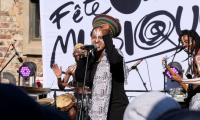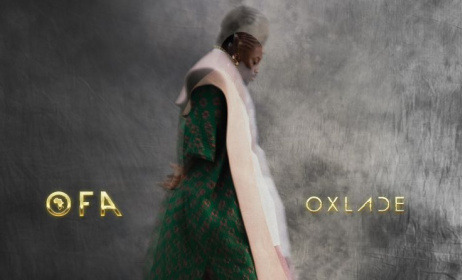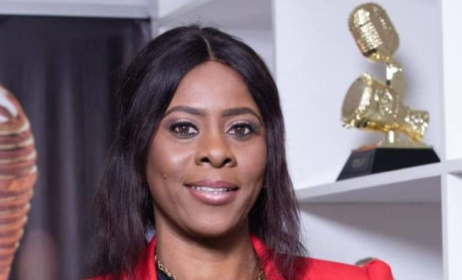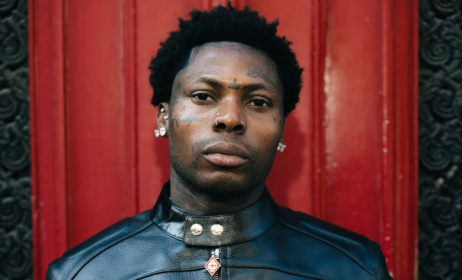Nigerian musicians march against police brutality
Nigerian musicians including Falz, Runtown and Tiwa Savage on 8 October led a peaceful protest in Lagos against police brutality and harassment, after a video emerged in early October of police officers allegedly killing a man in Ughelli and stealing his car.
 Tiwa Savage was among Thursday's protesters. Photo: Phylx Akakpo
Tiwa Savage was among Thursday's protesters. Photo: Phylx Akakpo
Other artists including Rudeboy, Wurld and rapper Blaqbonez were also spotted among the protesters. Fellow musicians MI Abaga and Olamide, who could not attend the march, took to social media to express solidarity.
Bearing placards and chanting “End SARS”, the protesters demanded a complete overhaul of Nigeria's police system, including the disbandment of the Federal Special Anti-Robbery Squad (FSARS), commonly known as SARS. Protests were also held elsewhere in the country, including at the police headquarters in the capital Abuja, as well as in Imo State.
“I don’t really think I have a choice, it’s something I have to do because everybody is affected by this,” Tiwa Savage said. “We have to do something, we are tired. Enough is enough. We have to value life – young lives in Nigeria. We have to speak up.”
Falz and Runtown announced their decision to protest via Twitter on Tuesday. On the same day, Naira Marley also announced that he would join the protest, but backtracked on his decision citing a police reform pledge by the inspector-general of police, Mohammed Adamu. The artist instead hosted an Instagram Live conversation with police spokesperson Frank Mba. Following the dialogue, Naira Marley gave the police a week to effect the reforms, failure of which would lead to a public march of his own.
“I was just happy and inspired to see how many people came out, and it just made me know that it’s about time to take our complaints beyond social media,“ Falz said after Thursday's protest. “We need to get out there to protest and let our intentions be known. We do not want SARS any more. This has happened multiple times. We need SARS completely abolished.” The rapper promised another protest in the coming days if the unit is not disbanded.
Thursday’s protests followed days of public outcry on social media under the hashtag #EndSars, with many users accusing the unit of extra-judicial activities including extortion and unlawful arrests. Wizkid, Davido and Teni were among the notable voices.
The #EndSars campaign is not new. In December 2017, following a similar public outcry against SARS, the then inspector-general of police, Ibrahim Idris, called for immediate reforms at the unit.
The latest protests were sparked by footage of alleged FSARS officials shooting a young man in the town of Ughelli, Delta State, and making away with the victim’s car. The Delta State police command has dismissed the video, which was circulated on social media on 3 October, claiming that “the victim was neither shot nor killed by the policemen” and that “the policemen involved are not SARS operatives as earlier reported.”
Meanwhile, Adamu has banned SARS from carrying out stop-and-search checks. He has also directed that members of the unit wear uniforms while on duty.
In related news, an Amnesty International report published earlier this year accuses FSARS of “at least 82 cases of torture, ill-treatment and extra-judicial execution” between January 2017 and May 2020. It alleged that the unit frequently targeted men between the ages of 17 and 30, particularly “young men with dreadlocks, ripped jeans, tattoos, flashy cars or expensive gadgets.”



































Comments
Log in or register to post comments